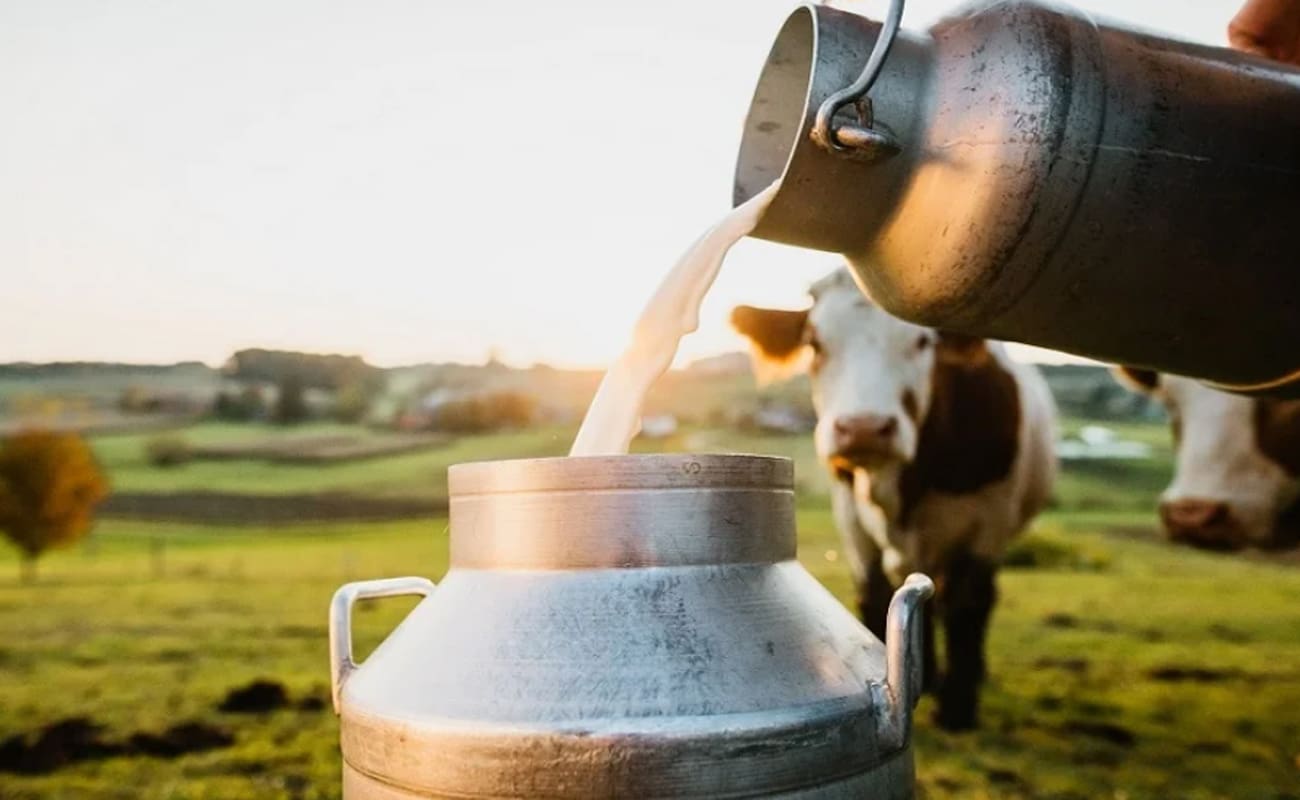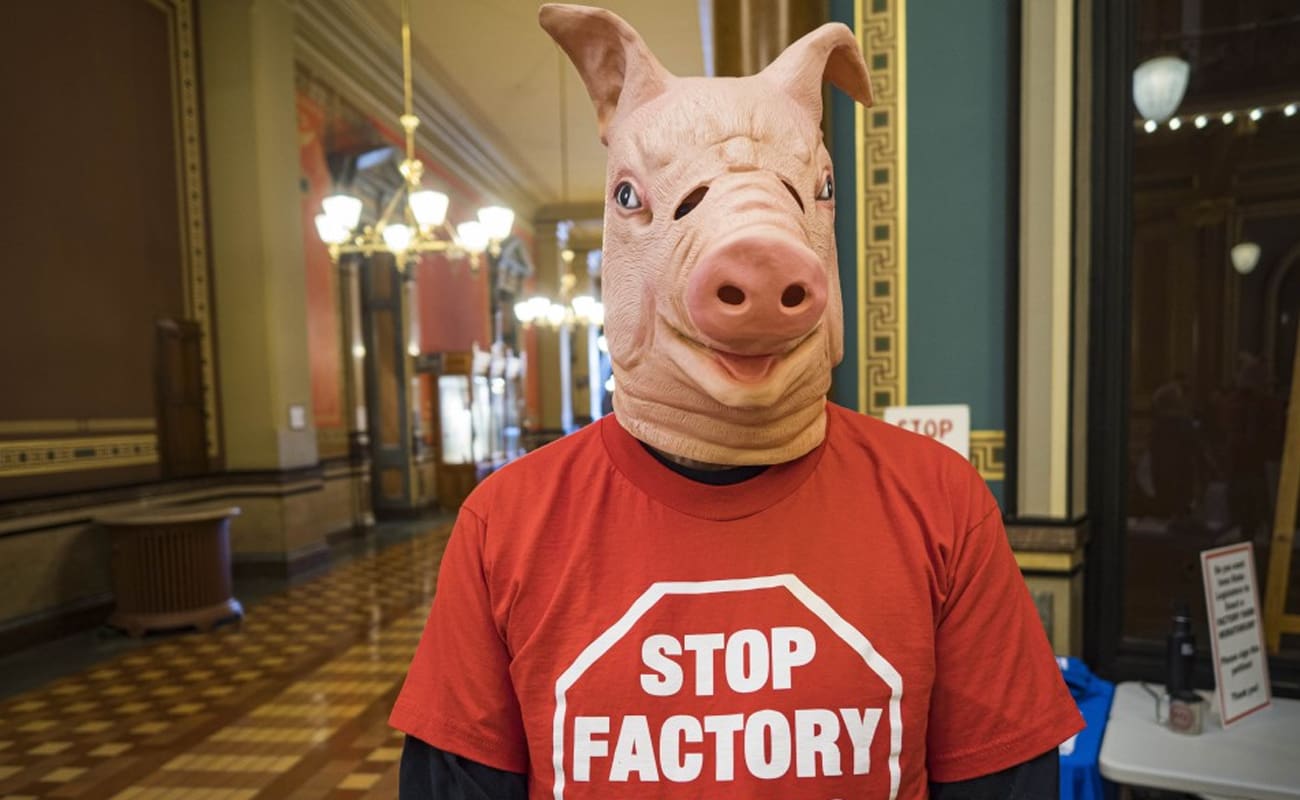Veganism is more than just a diet; it is a lifestyle choice that aims to promote compassion and make a positive impact on the world. Understanding the Vegan Lifestyle Veganism is more than just a diet, it is a lifestyle choice that aims to avoid exploiting animals and the earth. By understanding the principles of veganism, such as not using or consuming animal products, we can contribute to creating a more compassionate world. Benefits of a Vegan Diet A vegan diet can provide numerous health benefits, including: Supporting Animal Rights Through Veganism By adopting a vegan lifestyle, individuals can show their support for animal rights and help reduce animal cruelty. Veganism promotes the idea that animals have the right to live free from exploitation and unnecessary harm. Environmental Impact of Veganism Veganism can have a positive impact on the environment by reducing greenhouse gas emissions and saving water. Choosing plant-based …
Take Action
Have you ever stopped to think about the impact your dietary choices have on the world around you? With the rise in popularity of the vegan lifestyle, more and more individuals are embracing the power of compassion and making a conscious choice to choose veganism. Not only does this decision align with the values of kindness and respect for all living beings, but it also holds the key to a better future for our planet. Let's delve into the reasons why choosing vegan is choosing a better future for all. The Environmental Impact of Veganism Animal agriculture, one of the leading culprits behind environmental issues, is responsible for deforestation, water pollution, and greenhouse gas emissions. By opting for veganism, you can play a part in mitigating these detrimental effects on our planet. By choosing plant-based alternatives, you help reduce the demand for animal products, which in turn reduces the need …
In recent years, there has been growing evidence linking the consumption of dairy products and meat to various health problems. From increased risks of certain cancers to detrimental effects on the environment, it is important to understand the potential dangers associated with these food choices. The Dangers of Dairy Consumption Dairy consumption has been linked to an increased risk of certain cancers. High levels of saturated fat found in dairy products can contribute to heart disease. Many people are lactose intolerant and experience digestive issues from dairy consumption. Dairy products often contain added hormones and antibiotics, which can be harmful to human health. The Impact of Meat Consumption on Health Excessive meat consumption has been linked to an increased risk of heart disease and certain cancers. Red and processed meats are high in saturated fat, which can raise cholesterol levels. Meat consumption has been associated with an increased risk of …
In this article, we will shed light on the ethical, environmental, and health implications of supporting an industry that relies on animal exploitation for food production. It is important to understand the impact of our dietary choices and consider more sustainable and compassionate alternatives. Let's delve into the unmasking of the dairy and meat industry. The Impact of the Dairy and Meat Industry on Animal Welfare Factory farming practices in the dairy and meat industry often prioritize profit over animal welfare, leading to cramped and unsanitary conditions for animals. Animals are frequently confined in small spaces, unable to engage in natural behaviors, such as grazing or socializing. These conditions can cause distress and increased susceptibility to disease and injury. In addition, animals in the dairy and meat industry often undergo painful procedures, such as dehorning and tail docking, without proper anesthesia or pain relief. Consumers should consider the ethical implications …
Reducing meat intake has become a hot topic in the fight against climate change and environmental degradation. Many experts argue that it is more effective in mitigating the environmental impact of agriculture than reforestation efforts. In this post, we will explore the reasons behind this claim and delve into the various ways in which reducing meat consumption can contribute to a more sustainable and ethical food system. The Environmental Impact of Meat Production Meat production has a significant environmental impact, contributing to deforestation, water pollution, and biodiversity loss. Livestock agriculture is responsible for approximately 14.5% of global greenhouse gas emissions, more than the entire transportation sector. Reducing meat intake can help conserve water resources, as it takes a large amount of water to produce meat compared to plant-based foods. By reducing meat consumption, we can mitigate the environmental impact of agriculture and work towards a more sustainable food system. The …
In this post, we will explore the impact of meat and dairy production on sustainable agriculture and the challenges faced by the industry in achieving sustainability. We will also discuss the importance of implementing sustainable practices in meat and dairy production and the role of consumers in promoting sustainable choices. Additionally, we will address environmental concerns associated with meat and dairy production and explore alternatives to traditional meat and dairy products. Finally, we will look at innovations in sustainable farming practices and the collaborations and partnerships necessary for a sustainable meat and dairy industry. Stay tuned for an insightful and informative discussion on this critical topic! The Impact of Meat and Dairy on Sustainable Agriculture Meat and dairy production have a significant impact on sustainable agriculture, as they require large amounts of land, water, and resources. The greenhouse gas emissions from the meat and dairy industry contribute to climate change …
Animal cruelty in factory farms is a pressing issue that demands attention and action. The growing awareness of this problem has led many individuals to adopt a vegan lifestyle as a way to combat animal cruelty. Veganism, which involves abstaining from the consumption and use of any animal products, plays a crucial role in reducing animal suffering in factory farms. By eliminating the demand for animal products, veganism directly challenges the practices of industrialized animal farming and supports the ethical treatment of animals. In this blog post, we will delve into the role of veganism in reducing animal cruelty in factory farms and explore the benefits of choosing a vegan lifestyle. Join us as we examine the link between factory farms and animal cruelty, discuss the contribution of veganism in reducing suffering, and shed light on the ethical considerations of factory farming. We will also explore how veganism can break …
Factory farming is a prevalent practice in the food industry, but it often comes at a great cost to the animals involved. The inhumane treatment and cruelty inflicted upon animals raised for food production is not only ethically problematic, but also has serious environmental and health implications. In response to these concerns, many individuals are turning to a vegan lifestyle as an effective way to combat factory farm cruelty. By eliminating support for these practices and choosing a plant-based diet, individuals can make a positive impact on animal welfare, personal health, and the environment. In this post, we will explore the reasons why going vegan is a powerful response to factory farm cruelty, highlighting its benefits and providing practical tips for transitioning to a vegan lifestyle. Understanding Factory Farm Cruelty Factory farm cruelty refers to the inhumane treatment of animals raised for food production. Animals on factory farms are often …
In this article, we will delve into the various aspects of plant-based diets, including the health benefits, environmental impact, and dispelling nutritional myths. We will also uncover the truth behind the link between meat consumption and disease, and provide a roadmap to achieving optimal nutrition without meat. Let's dive in and challenge the idea that humans require meat for a healthy diet. Examining the Health Benefits of Plant-Based Diets Plant-based diets have been shown to reduce the risk of chronic diseases such as heart disease, diabetes, and certain types of cancer. Research suggests that plant-based diets can improve overall health and contribute to weight loss and lower cholesterol levels. Plant-based diets are rich in fiber, vitamins, and minerals, which can support a healthy immune system and promote digestion. Transitioning to a plant-based diet can help individuals achieve and maintain a healthy weight, reducing the risk of obesity-related diseases. Exploring the …
Transitioning towards a more sustainable lifestyle can often feel overwhelming. With so many aspects of our daily lives impacting the environment, it's easy to question where to start. However, making a difference doesn't always require drastic actions. In fact, one simple and effective step towards environmental sustainability is embracing Meatless Mondays. By eliminating meat from our diets at least once a week, we can reduce our carbon footprint, conserve valuable resources, and contribute to a healthier planet. The Environmental Impact of Meat Consumption It's no secret that meat production has a significant impact on our environment. From deforestation to greenhouse gas emissions, the scope of its consequences is alarming. Did you know that livestock accounts for nearly 15% of global greenhouse gas emissions? Additionally, the meat industry is responsible for immense deforestation, mainly for cattle grazing and growing feed crops. These activities contribute to biodiversity loss and accelerate climate change. …











